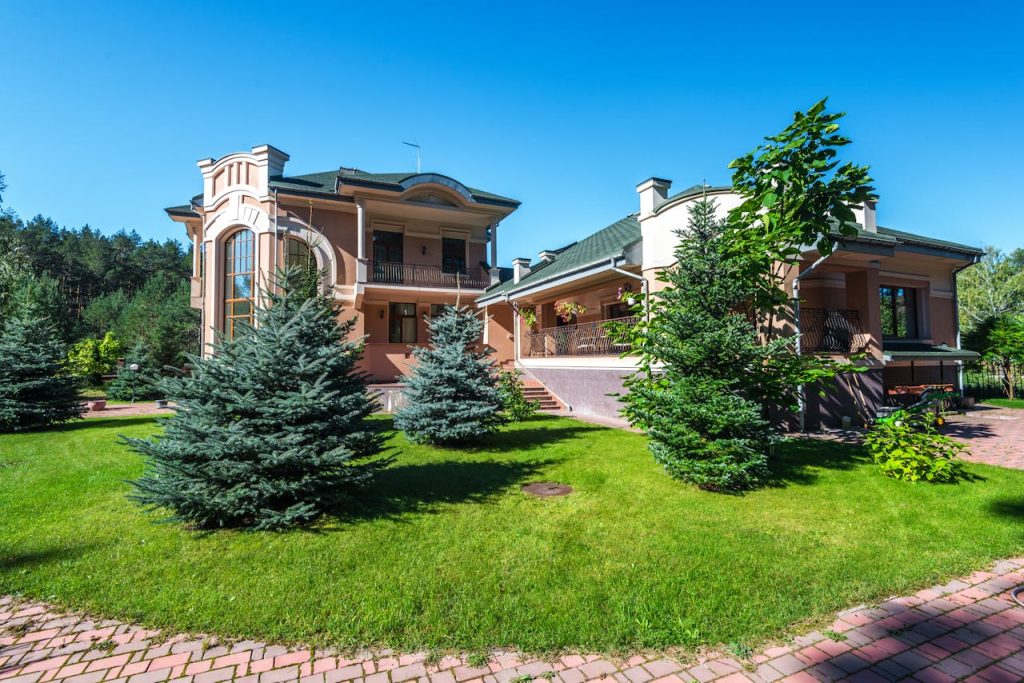Buying your first home in Pakistan is a thrilling step, but it can feel daunting without a clear plan. Whether you’re looking in Karachi, Lahore, Islamabad, or a smaller city, this simple checklist is designed for first-time buyers. It breaks down every step in easy words with practical tips to help you make confident choices.
1. Assess Your Finances
Start by understanding your money situation before house hunting.
- Set Your Budget: Figure out how much you can spend. Your monthly mortgage payment should ideally be 30-35% of your monthly income.
- Save for a Down Payment: Down payments in Pakistan are usually 10-20% of the property price. For a PKR 10 million house, that’s PKR 1-2 million.
- Include Extra Costs: Account for property taxes, legal fees, stamp duty, and maintenance, which can add 5-10% to the total cost.
- Check Your Credit Score: A strong credit score gets you better loan terms from banks like HBL, Meezan Bank, or Standard Chartered.
Tip: Use online calculators to estimate monthly payments based on loan amounts and current interest rates.
2. Get Pre-Approved for a Loan
A pre-approved loan shows sellers you’re serious and clarifies how much you can borrow.
- Compare Lenders: Look at interest rates or profit rates from banks and Islamic financing options. Rates are typically 12-15% for conventional loans or similar for Shariah-compliant plans.
- Prepare Documents: Have your CNIC, proof of income (salary slips or business records), bank statements, and tax returns ready.
- Apply Early: Pre-approval takes 1-2 weeks, so do this before visiting properties.
Tip: Islamic banks like Meezan or Dubai Islamic Bank offer interest-free home financing for Shariah-compliant preferences.
3. Define Your Needs and Wants
Know what you want to avoid wasting time.
- Choose a Location: Pick an area like DHA, Bahria Town, or Gulberg based on proximity to work, schools, or family.
- Select Property Type: Decide between a house, apartment, or plot. Apartments are often more affordable in cities like Karachi or Islamabad.
- List Features: Note must-haves (e.g., 3 bedrooms, parking) versus nice-to-haves (e.g., a big lawn or modern kitchen).
- Think Long-Term: Consider resale value or areas likely to grow due to new infrastructure projects.
Tip: Write down 5 must-haves and 3 nice-to-haves to focus your search.
4. Research the Market
Pakistan’s property market varies by city, and staying informed helps you find good deals.
- Compare Prices: Check sites like Zameen.com or Graana.com for property prices. Average costs might be PKR 8-15 million for a 5-marla house in Lahore or PKR 12-20 million in Islamabad.
- Spot Trends: Areas near new developments (e.g., CPEC projects or metro expansions) may have better investment potential.
- Visit Properties: See 5-10 properties to get a sense of what’s available in your budget.
Tip: Follow real estate groups on platforms like X for the latest market updates and deals.
5. Hire a Trusted Real Estate Agent
A reliable agent saves time and protects you from scams.
- Find a Local Expert: Choose someone who knows your target area, like DHA Karachi or Bahria Town Rawalpindi.
- Verify Credentials: Ensure they’re registered with a reputable agency or the Pakistan Real Estate Agents Association.
- Clarify Fees: Agents typically charge 1-2% of the property price. Ask how they’ll assist with negotiations.
Tip: Get agent recommendations from friends or family to avoid unreliable ones.
6. Inspect the Property Thoroughly
Never buy without a detailed check.
- Visit in Person: Look for issues like leaks, poor construction, or old wiring.
- Check Legal Papers: Verify the title deed, No Objection Certificate (NOC), and ownership records with the local authority (e.g., LDA, CDA, or KDA).
- Hire a Professional: A surveyor or engineer can spot structural problems that could cost you later.
Tip: Visit the property at different times to check for noise, traffic, or safety issues.
7. Understand Legal and Tax Requirements
Property laws in Pakistan can be complex, so stay informed.
- Confirm Ownership: Ensure the seller has clear legal ownership through the local land registry.
- Budget for Taxes: Plan for stamp duty (1-2% of property value), Capital Value Tax (CVT), and registration fees.
- Sign a Sale Agreement: Have a lawyer review this legal document before signing.
Tip: Hire a trusted property lawyer to handle paperwork and avoid fraud.
8. Negotiate the Price
Bargaining is common in Pakistan’s real estate market.
- Know Market Rates: Use your research to make a fair offer. Point out comparable listings if the price seems high.
- Be Flexible: If the seller won’t lower the price, ask for extras like repairs or included appliances.
- Stay Firm: Don’t overpay under pressure. Be ready to walk away if the deal isn’t right.
Tip: Start with an offer 5-10% below the asking price, but keep negotiations friendly.
9. Finalize the Financing
Once you pick a property, secure your loan.
- Submit Documents: Provide the bank with property papers and pre-approval details.
- Review Terms: Check the loan tenure (e.g., 10-20 years), monthly payments, and early repayment penalties.
- Get Insurance: Some banks require property or life insurance for the loan.
Tip: Read the loan agreement carefully for any hidden fees.
10. Close the Deal and Move In
You’re almost done! Wrap up these final steps.
- Sign the Sale Deed: Complete and register it with the local authority.
- Pay Remaining Costs: Clear any outstanding taxes, fees, or down payment.
- Transfer Utilities: Set up electricity, gas, and water in your name.
- Move In: Plan your move, hire movers if needed, and settle into your new home!
Tip: Celebrate this big moment! Buying a home is a huge achievement.
Final Thoughts
Buying your first home in Pakistan is a journey, but with careful planning, it’s within reach. Follow this checklist, take your time, and seek professional help when needed. Soon, you’ll be stepping into your dream home!
Disclaimer: Property prices and loan rates are estimates based on current trends. Always verify the latest rates and regulations before deciding.



